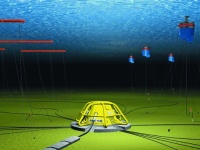The move to low carbon can sound radical —and to some might even seem quite daunting, particularly in these challenging economic times. But the reality is that it is a massive opportunity and will rely heavily on industry having the right skills.
The move to a truly low-carbon economy will change every aspect of our society: the way we live and work, the skills we need and the jobs we do. And it will mean a complete transformation of our economy.
At national government level we have already written into law an 80 per cent reduction in greenhouse gas emissions by 2050 and an interim 34 per cent reduction by 2020.
To meet these budgets we need an industrial revolution across the UK. But we’re not starting from scratch.
The UK currently holds a 3.5 per cent share of the global market for low-carbon and environmental goods and services, worth around £107bn and employing more than 880,000 people in this country. In context, by world comparisons, this puts us sixth. And by 2015 it’s estimated that this sector in the UK alone could be worth as much as £150bn.
The opportunities for growth are huge — globally this market is set to grow from £3 trillion to £4.3 trillion by 2015. With a global market of this size we want the UK to continue to be at the forefront in seizing the economic benefits of the transition to a low-carbon economy.
We recognise that in addition to providing significant funding to key sectors of the economy we also need a strategic approach to the development of low-carbon industries that applies at every level: national, regional and local.
That is why we have created Low Carbon Economic Areas (LCEAs) that bring together regional development agencies, local authorities, employers, educational groups and sector specialists to accelerate low-carbon activity in locations where existing industry or geography gives us clear advantage.

This will help UK regions and devolved areas compete on an international scale, attracting foreign and inward investment and building collaborations to improve R&D and drive entrepreneurship. For example, the first LCEA was announced in the South West where there is a focus on marine technology. As a result, work has already begun and investment of around £100m has gone into projects such as the Wave Hub. It is important to remember that although these are regional, it has benefits for the whole UK — for example, the cables of the Wave Hub are made in Blackpool.
There are many actions that government can take to move the UK onto a low-carbon footing but this country’s low-carbon future can only be built by people who have the skills demanded by new industries in a globalised economy.
We know that there are challenges for skills in the energy sector, not least due to an ageing workforce and a reducing number of young people in the recruitment pool, but government is taking action and making progress.
The National Skills Strategy (published in autumn 2009) will help sharpen our focus on supporting skills development in low-carbon industries, occupations and technologies.
Even if none of us knows exactly what the low-carbon economy will eventually look like we do know that it is inevitable. Ultimately, low carbon is not a sector of the economy — it is the economy.
Post-Copenhagen I believe we will see this low-carbon economy taking hold globally. The greatest opportunities will be captured by the countries bold enough to be first movers.
Edited extracts of a speech given last month at the New Engineering Foundation Awards and Annual Conference
David Kidney
Parliamentary Under Secretary of State Department for Energy and Climate Change
Education
LLB University of Bristol
Career
- 1977-1997 Solicitor
- 1987-1997 Stafford Borough Councillor
- 1997 Became MP for Stafford, beating Conservative candidate David Cameron
- June 2009 Joined Department for Energy and Climate Change ministerial team





Poll: Should the UK’s railways be renationalised?
The term innovation is bandied about in relation to rail almost as a mantra. Everything has to be innovative. There is precious little evidence of...